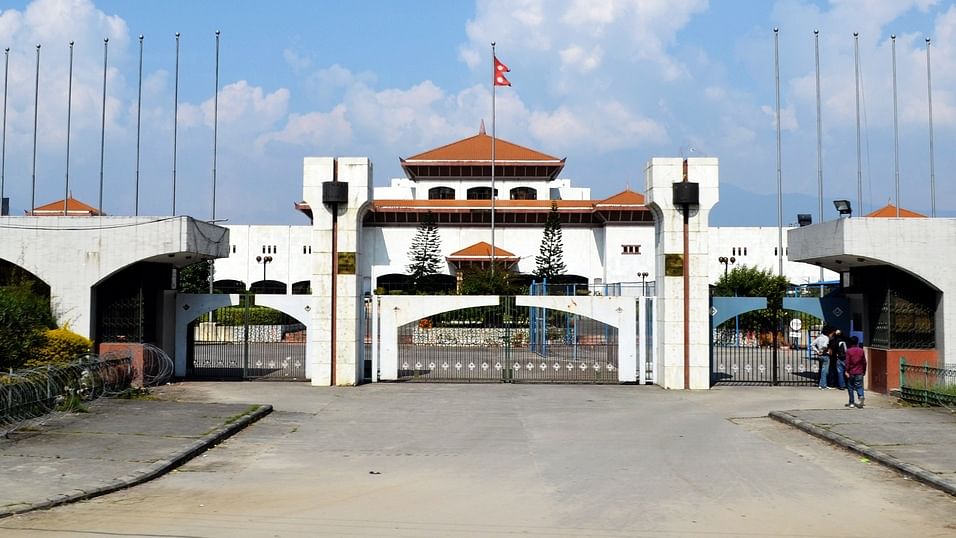New Delhi: China is steadily expanding its footprint in Nepal not only through joint military programmes and by teaching Mandarin in Nepali schools, but also through training and grooming the country’s bureaucracy.
According to a 24 June report in The Kathmandu Post, the number of training and scholarship programmes offered by China for Nepalese civil servants has gone up by over 40 times in the last 15 years.
While Beijing offered just 20 training programmes in 2004, the number has gone up to 850 in 2019, leaving behind countries like the US, South Korea and some European nations, which also offer similar courses.
While the 850 courses have been allocated for the Nepal government’s finance ministry, the total number of courses offered by China for other ministries is expected to be even higher, the report said.
“In the past, the United States of America, Japan, Thailand, South Korea and some European countries provided such opportunities for civil servants, but China has completely eclipsed every other country with the large number of training programmes and scholarships on offer,” the report stated.
After Pakistan, Maldives and Sri Lanka, China’s activities in Nepal seem to be an extension of its strategy to encircle India.
Also read: Modi govt to expand lateral entry scheme for civil servants with 50 NITI Aayog recruits
‘Reason for India to worry’
S.D. Muni, a distinguished fellow at the Institute of Defence Studies and Analyses, said it is a reason for India to worry.
“This is evidence of China’s growing presence in Nepal — politically, administratively, economically, in terms of tourism — they are making their presence felt in every sphere,” he said.
“Training the bureaucrats is just one way to mark your presence in the country…India has done that earlier, China is doing the same now,” Muni added.
Achyut Wagle, an adjunct professor at Kathmandu University, also said it was a clear indication of China’s growing influence in the Himalayan country, and signifies a “paradigm shift” in Nepal’s governance.
“Nepal is a small country, so it always had influences…In the 1950s, Indian bureaucrats would sit in Nepal’s cabinet meetings — that was the kind of influence India had,” he said. “But ever since the (2015) blockade, India ceded that space entirely to China.”
The blockade of Nepal’s border with India was imposed in 2015 by the ethnic Madhesis in Nepal, who believed that the new Constitution did not give them fair representation in Parliament.
“Moreover, with the BRI (Border Road Initiative), there has been a general opening up of areas in which the Chinese can collaborate with Nepal…BRI is not just limited to infrastructure anymore,” Wagle said.
Also read: 66 ex-civil servants allege 9 model code violations, call Election Commission ‘weak-kneed’
China offering training in security, intelligence areas
According to a foreign affairs commentator in Nepal, China is offering training in a range of areas — from security to intelligence and administration.
“They are taking civil servants to Kunming in large numbers…And there, they are trained in a range of administration, security and intelligence-related areas,” the commentator said.
The civil servants, who go to China (for training), are sent on paid leave, and receive scholarships and stipends from the Chinese government, the commentator said.
“It is like what they are doing in schools…It is not compulsory for students to learn Mandarin, but when a school approaches China for Mandarin teachers, they provide them for free — thus, encouraging more schools to sign up,” he added.
“They are increasing the influence in areas of military, language, teaching, governance. They are not leaving any stone unturned,” the commentator said.
Earlier this month, there were reports of at least 10 renowned private schools in Nepal making Mandarin compulsory — a move seen as a cause for concern for the Modi government over Nepal’s further shift towards China after it agreed to be a part of the Beijing-led multi-billion dollar mega infrastructure project, the BRI.
As part of the BRI, China is building a ‘Trans-Himalayan Multi-Dimensional Connectivity Network’, connecting Kathmandu to Xigaze.
India has also provided mid-term career enhancement programs on management, governance, leadership, etc. to bureaucrats in Afghanistan, Bangladesh, Bhutan, South East Asian countries, Africa, among others.
